God made a promise to Abraham, to make his name great and to give him more offspring that could be counted. And, God promised to cause Abraham to be the hereditary source of blessing to all the peoples of the earth.
Jesus of Nazareth, Son of Abraham and Son of David, came as the anointed Son of God. With His last command, He mobilized His followers to share God’s promise with the world by publishing the glad tidings that the curse of sin had been overcome and that Jesus had shed his own blood to ransom us back to God.
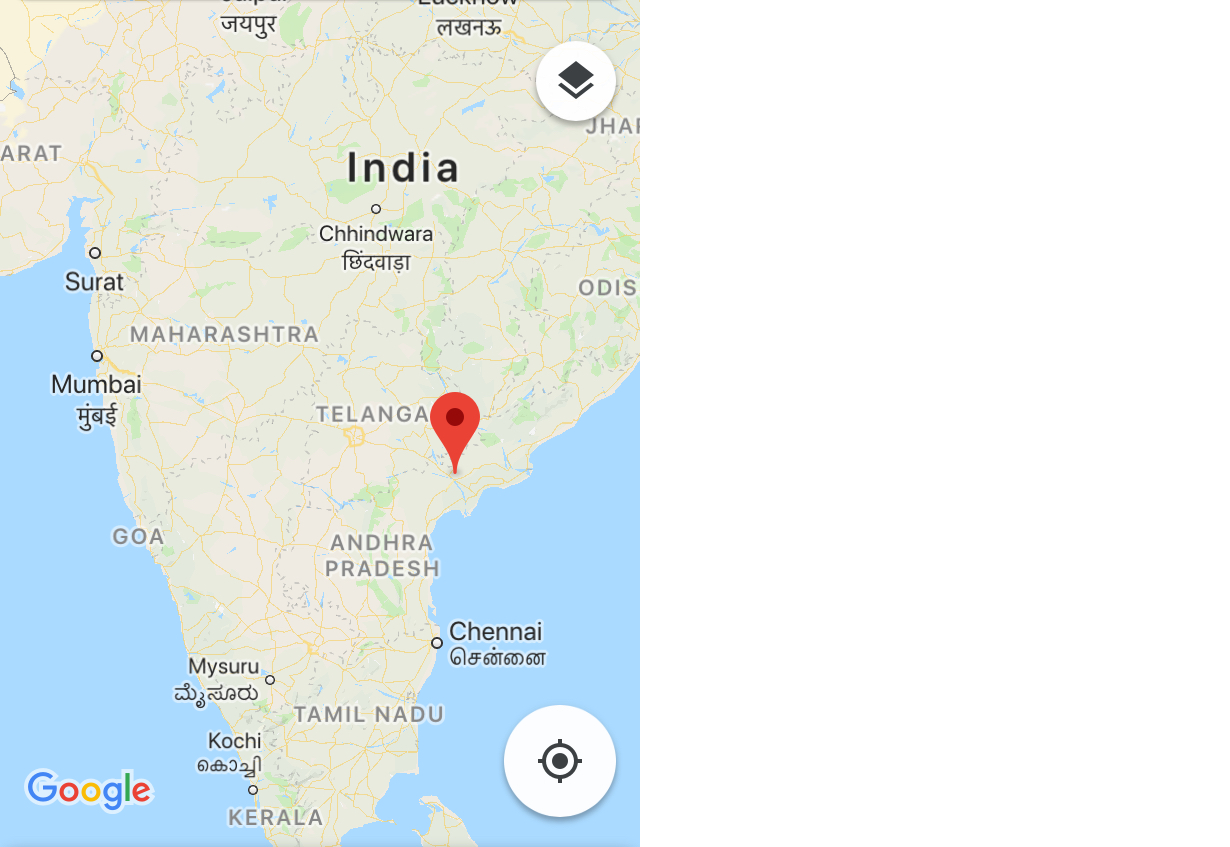
Most missions people agree that the roll of cross-cultural Christians in the task of world evangelization is not to do the evangelism, but to help with service and leadership development. This is why I believe my international role is to teach and train pastors and church leaders. So I left on August 8 for a 2-week-plus teaching mission in South India.
Can I just begin by saying that India is rather different than the US? There was a constant inner adjustment.
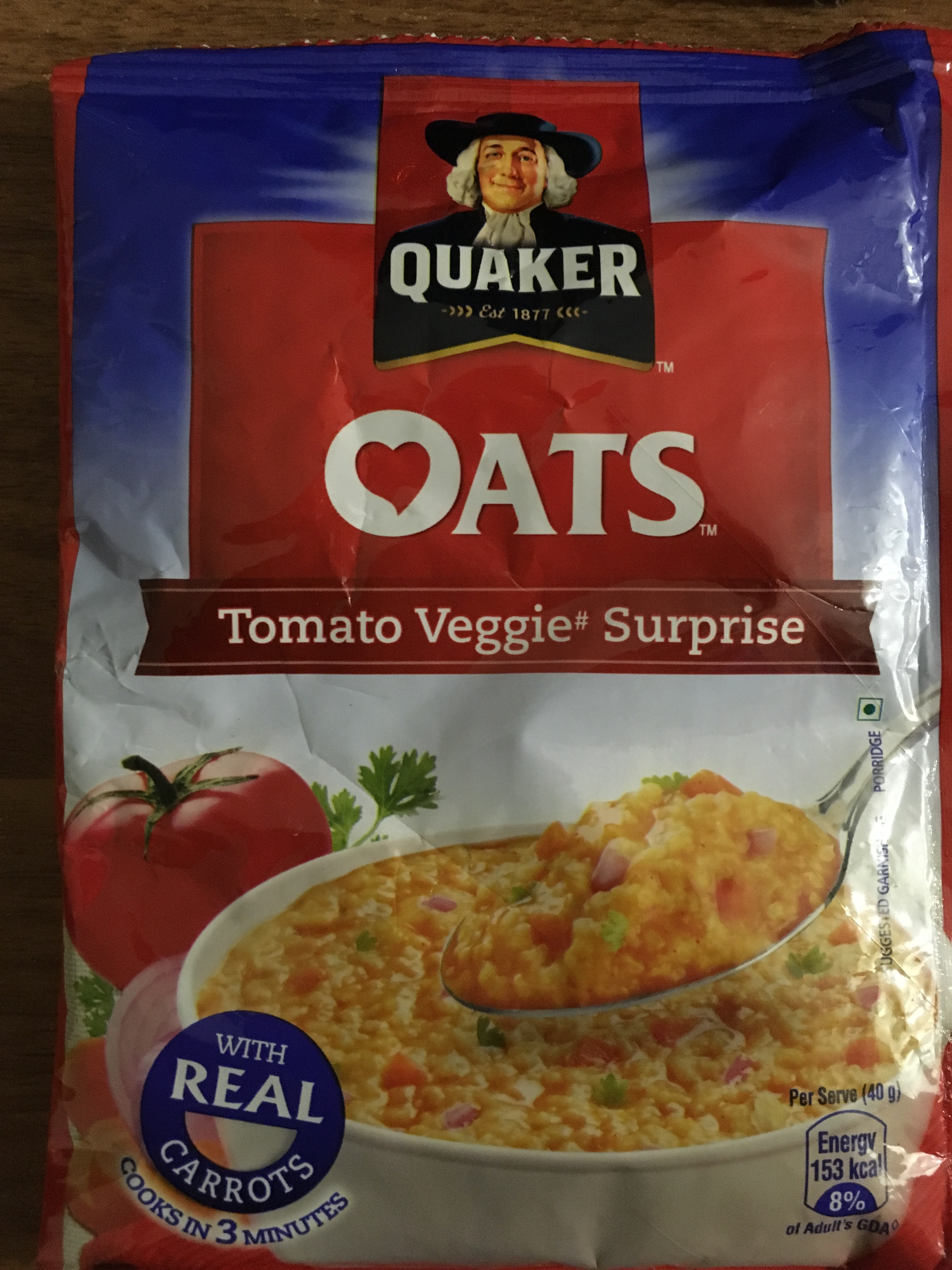
After a series of flights, I arrived in Vijayawada, India on Saturday, August 11. I was met by Chintapalli Prem Kumar, pictured here with his family.
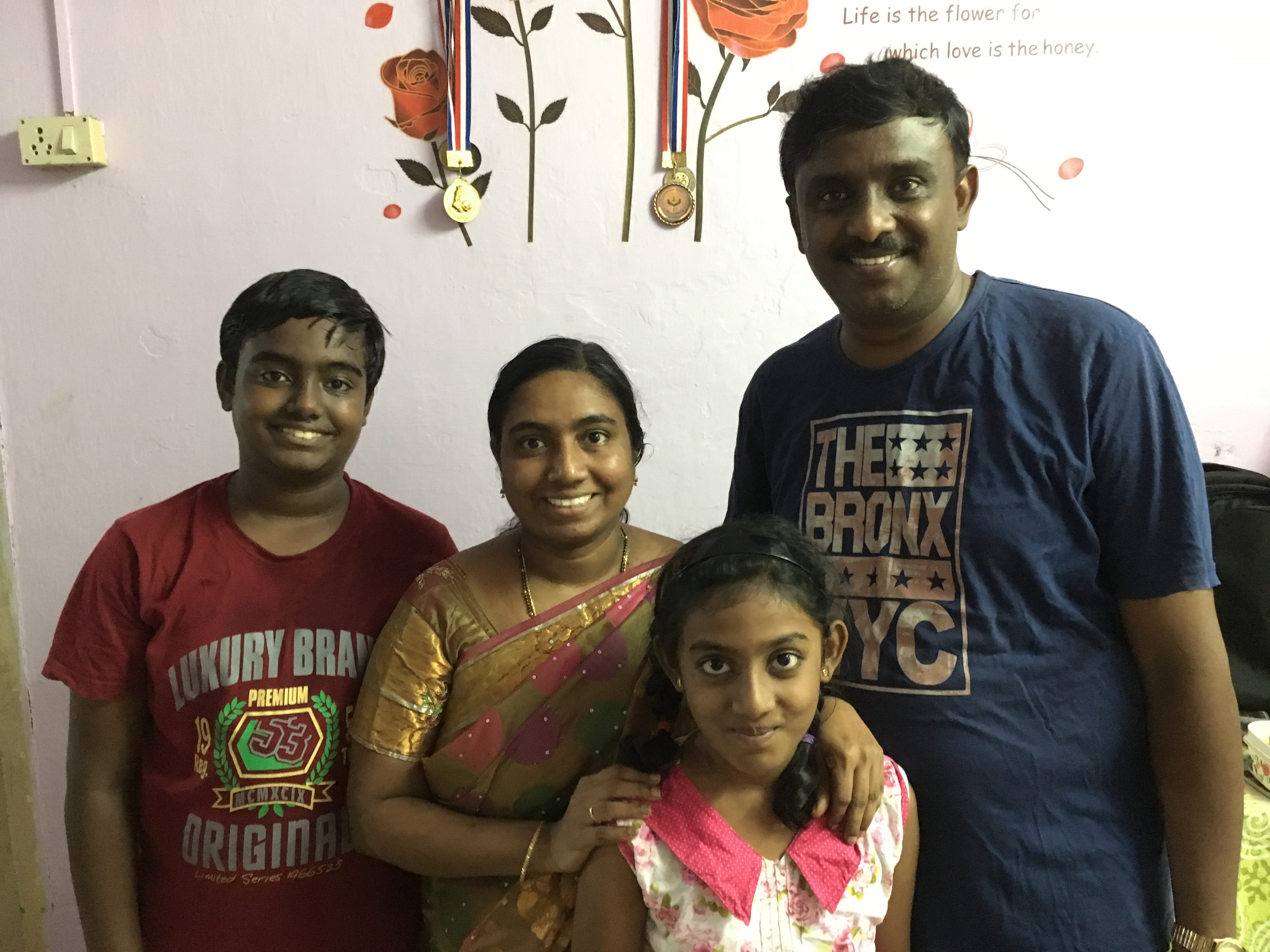
Formerly the head of Vijayawada Bible Seminary where I would be preaching, he now serves as bishop’s commissary for his region, supervising 150 churches, in addition to pastoring 2 different churches totalling 3 different congregations. Don’t let the t-shirt fool you: Prem holds 2 graduate degrees and is fluent in 4 languages.
We had met and spent time together my first trip there in 2011. This time he would be with me for 2 weeks, not only translating for me, but especially helping me navigate through train stations and other strange places, and to prevent my causing any international incident out of ignorance or blundering.
Sunday September 12. I was welcomed as preacher of the day to the English Language service of St. Thomas Church, Evangelical Church of India.
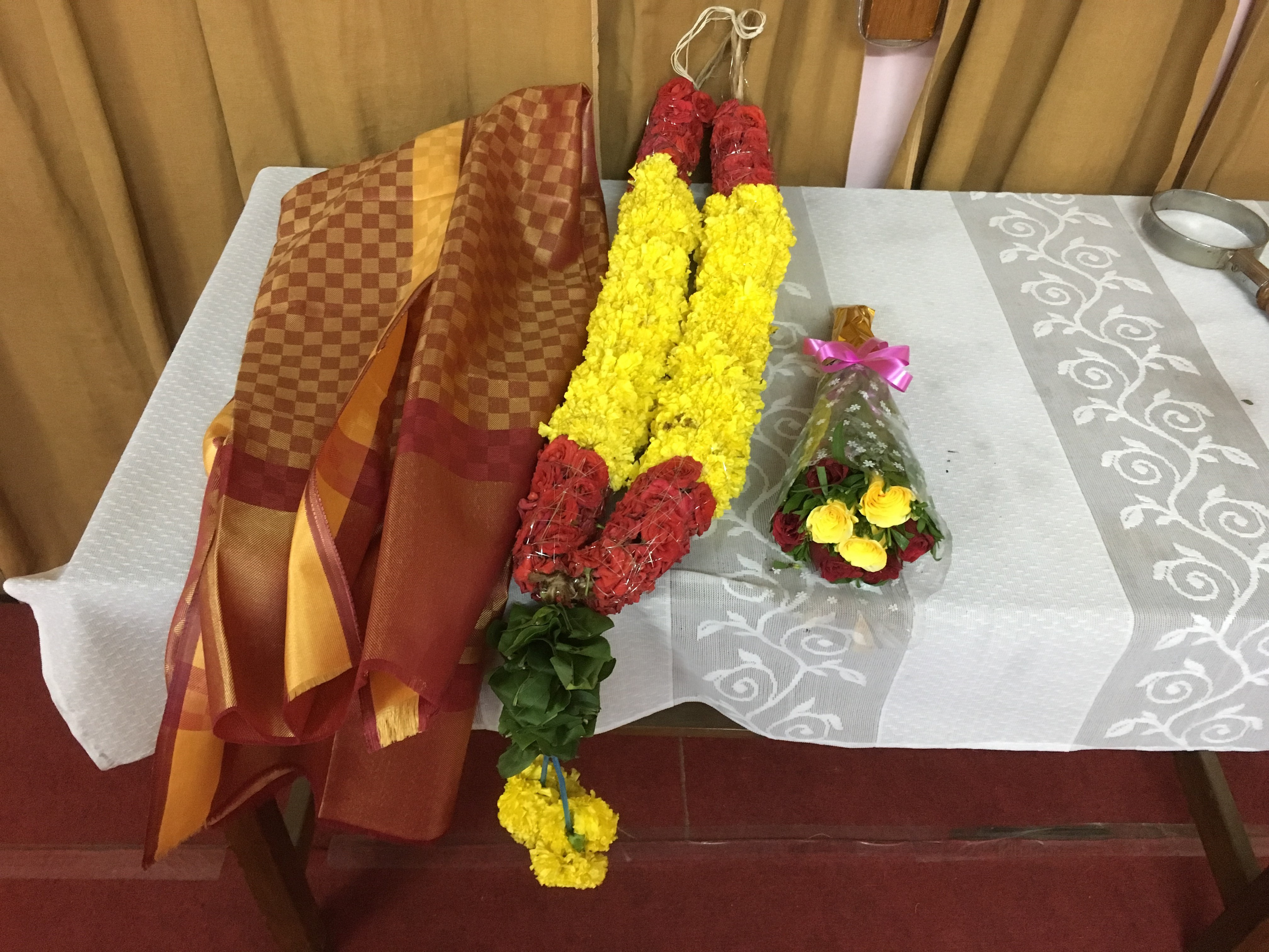
Because they expect at least a 35 minute sermon, I began with the message from the end of July, “The Problem of Suffering,” and expanded it to fit the time allotted. But some of you might remember the story of Anglican Church Envoy Terry Waite, who endured 4 years of solitary confinement by holding firm to his trust in God and saying to his captors, “You have the power to break my body – and you have tried. You have the power to bend my mind – and you have tried. But my soul is not yours to possess.” It ends up that those words were just what one woman, highly respected in the congregation, needed to hear.
There was a woman there who needed to tell a trustable stranger something she would have had a hard time telling her best friend. She struggled with feelings of guilt that threatened to cripple her spiritual life. I reminded her that Satan’s name means “accuser,” and that he was wanting to mess with her precisely because Jesus loved her and had claimed her for His own. I prayed with her, and she copied down that Terry Waite quote, so that when the tormenting accusations came to her mind, she could tell him that her soul was not his to possess. She was encouraged, and when I saw her later in the week, her positive attitude made me glad that I had shared the promise of God’s comfort and protection with her.
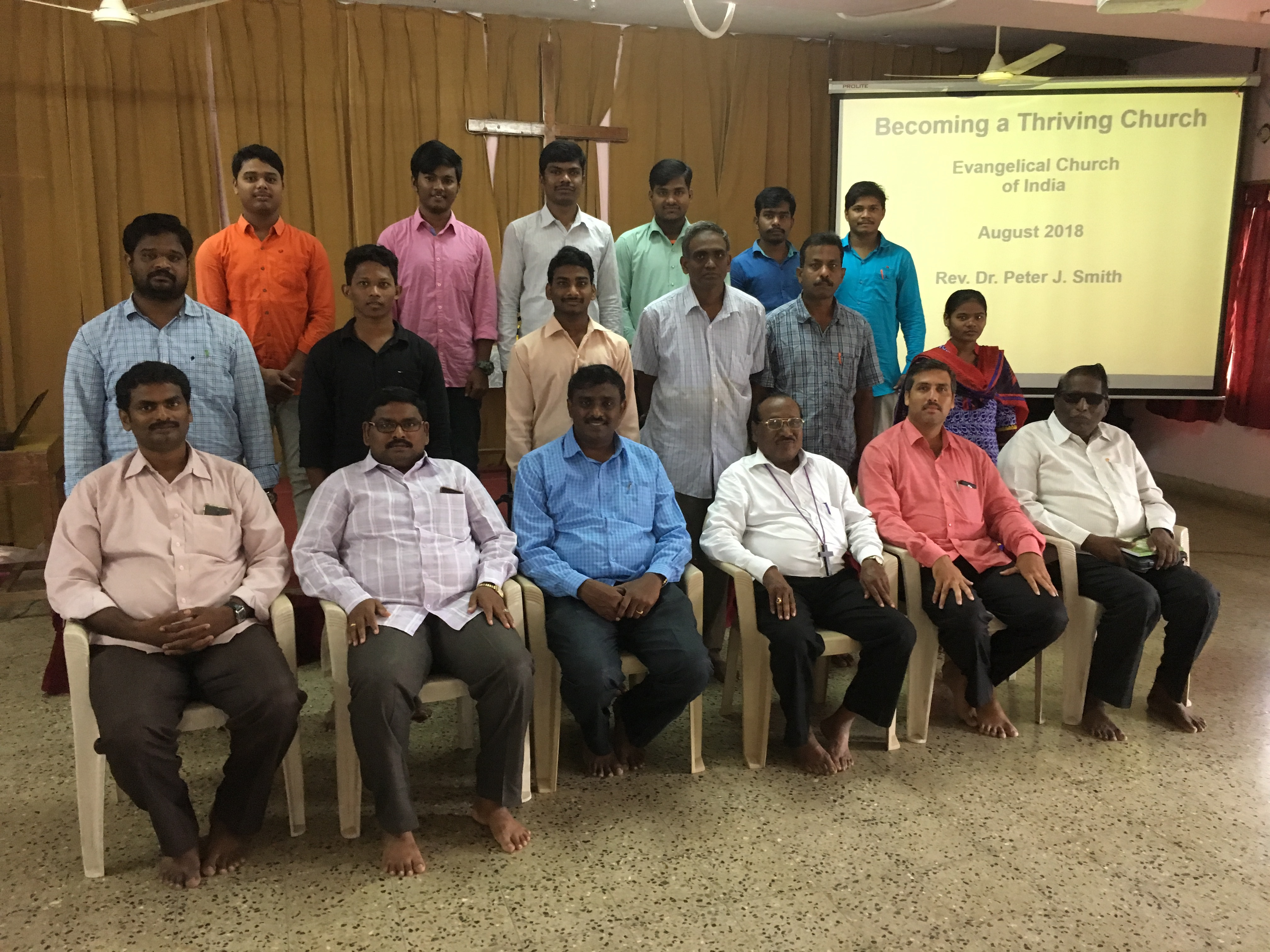
Monday and Tuesday I taught a 3 hour class on the 8 Characteristics of Thriving Churches in the mornings and 2 hours on Paul’s Letter to the Romans in the afternoon, both translated into the local Telagu language by Prem and other faculty members.
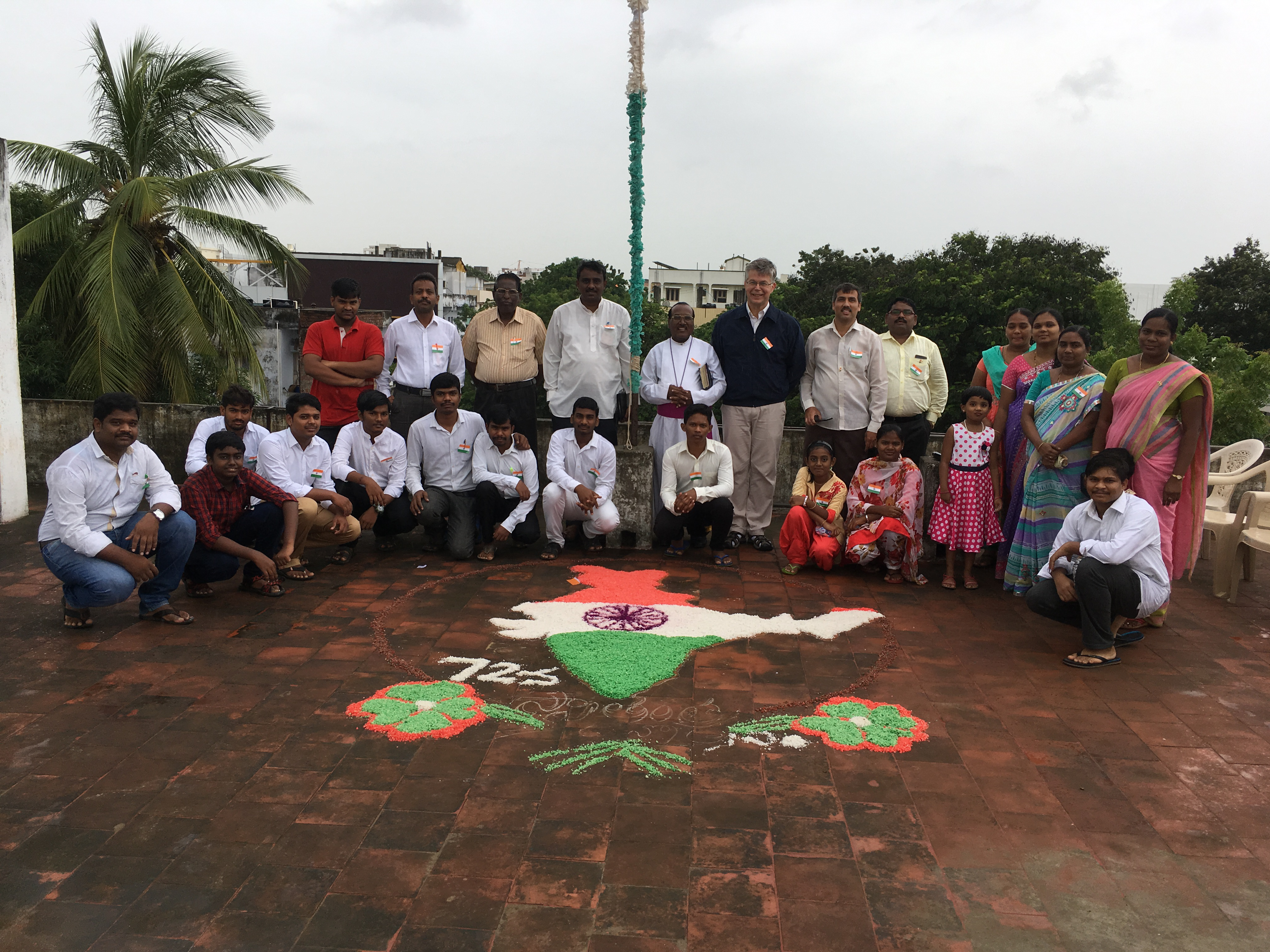
On Wednesday, August 15, India celebrated its Independence Day. After a morning ceremony, classes were dismissed for the day, although we gathered in the evening for a community dinner which your gifts sponsored. During the day I spent time with Amos. I met him at the English language service after observing him lead worship. He is a handsome young man. He is a medical student who desires to bring quality healthcare to the forgotten people of the northern tribes. I had invited him to come and spend time with me so that we could talk about the music aspects of leading worship. I also said I would like to see more of the city. He came, left his guitar in my room, and we set out. He has a small motorcycle, more of what we would call a scooter. I held on as he wove his way expertly through the crazy Indian traffic.
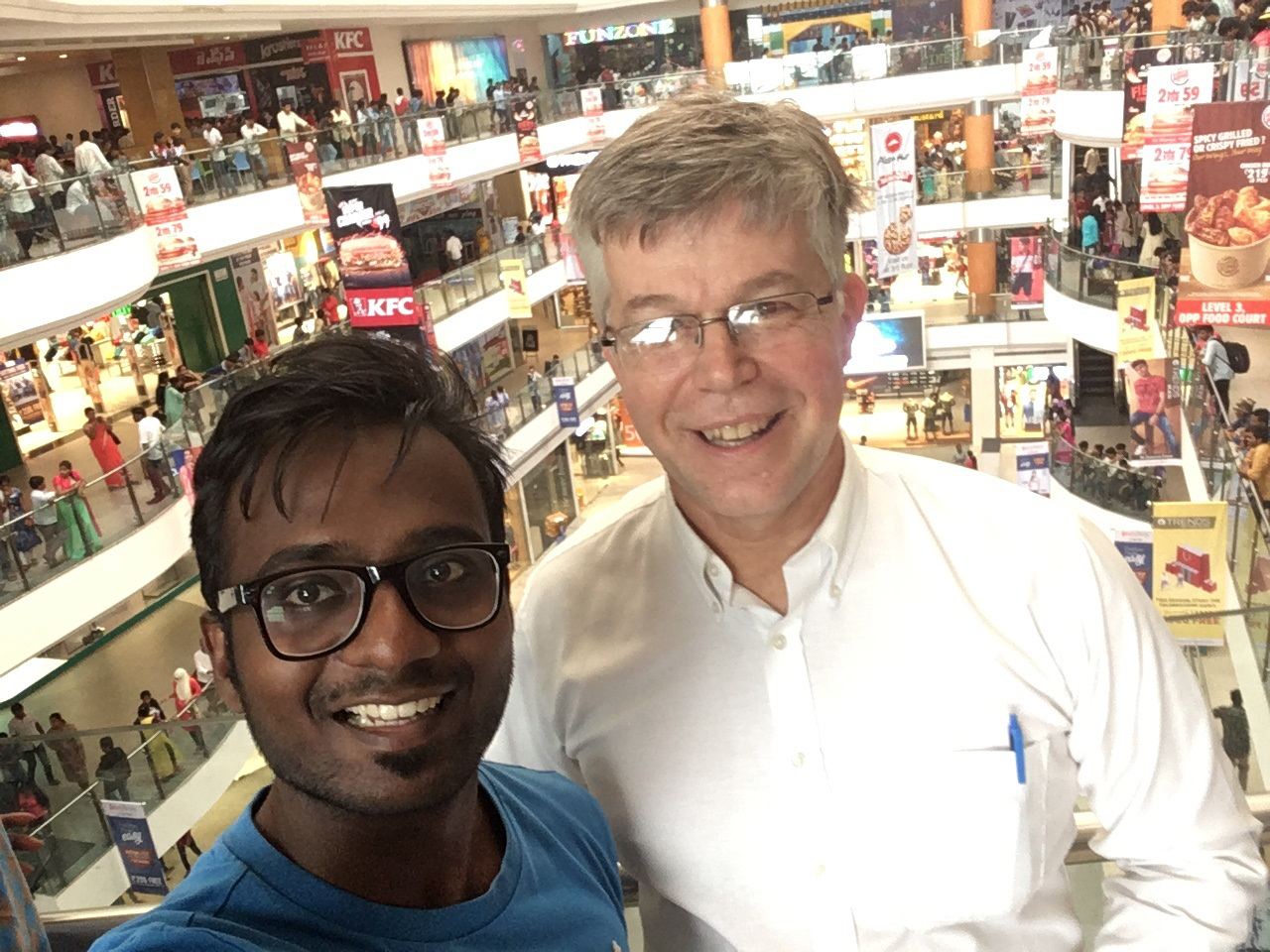
We went to the mall and then to the shores of the river Krishna, where we shared an ear of corn. More and more he began to talk about what was important to him. He comes from a background that would be disadvantaged in Indian culture, even though he is very bright, and his father has provided for them very well. It was a challenge for him to get into medical school because only a few scholarship positions were open. Wealthy families can purchase a place for their children in medical school and even purchase their graduation. The effect this has on medical care for those who must accept whatever the government offers them is both predictable and tragic.
Amos brought me to a store where I could purchase souvenirs for my family. We then went back to the mall because he wanted me to show him what American Pizza was like. Sadly, Boston’s North End was nowhere to be found, so I brought him to the Pizza Hut there. I chose the most American option, but when it came it had decidedly Indian spicing to it. But that wasn’t really important.